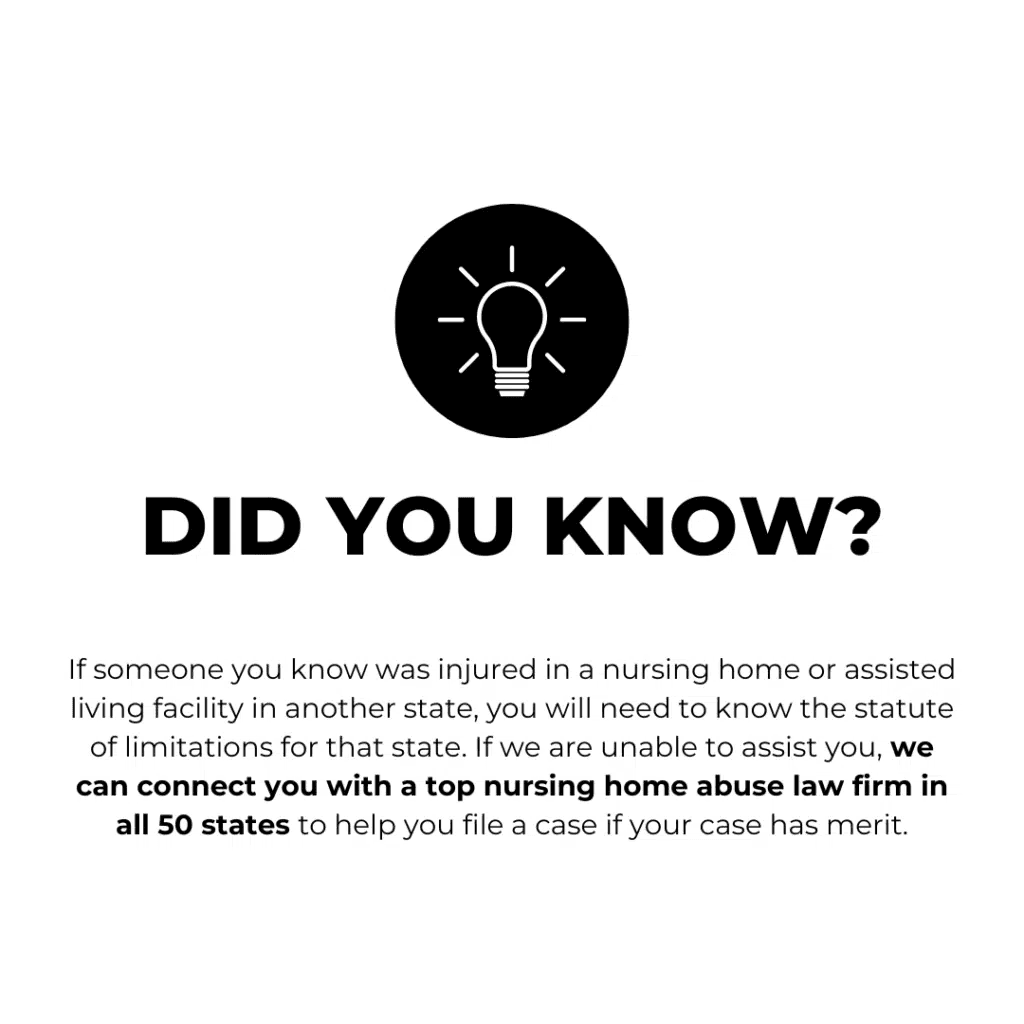
Nursing home abuse and neglect put vulnerable residents at serious risk, leading to malnutrition, dehydration, infections, and preventable injuries. When facilities fail to provide adequate care, residents suffer, and families are left feeling helpless. Lack of supervision, improper medical treatment, and unsafe conditions can result in devastating harm. Understanding the warning signs, knowing your legal rights, and holding negligent facilities accountable are crucial steps in protecting your loved ones. Learn how to take action and seek justice.
November 5, 2024
3 min
As society increasingly shifts to digital platforms, nursing home abuse is also evolving, now extending into the online realm. This shift introduces new forms of exploitation that are harder to detect and combat. The once-safe online environment, designed for connection and convenience, now presents significant risks for elderly nursing home residents. Understanding the nature of online nursing home abuse, its impacts, and how to fight it is crucial for keeping our loved ones safe in this rapidly changing digital age.
Traditionally, nursing home abuse was largely limited to physical spaces and involved direct harm from caregivers, staff, or other residents, such as physical violence, emotional mistreatment, or financial exploitation. However, as more elderly individuals begin using the internet and nursing homes increasingly rely on digital technology, a troubling new form of abuse has emerged: online exploitation. This can include harmful activities like financial scams, identity theft, online bullying, and the unauthorized sharing of personal information, posing significant risks to vulnerable residents in the digital age.
As elderly residents become more accustomed to online banking, shopping, and managing their finances digitally, cybercriminals are increasingly targeted by sophisticated tactics like phishing emails, fake websites, and fraudulent phone calls. These scams exploit the elderly’s trust and limited familiarity with digital security, making them vulnerable to schemes resulting in significant financial loss, drained bank accounts, and stolen identities. Often, scammers pose as trusted entities, such as government agencies, banks, or even friends, making it difficult for elderly individuals to discern what’s legitimate. The consequences of falling victim to these scams go beyond financial ruin; they can also lead to deep emotional distress, a loss of independence, and a breakdown in trust with caregivers and family members. Additionally, the elderly often hesitate to report these incidents out of embarrassment or fear, allowing the problem to go unnoticed and unaddressed.
Cyber harassment is an increasingly alarming issue, where abusers use digital platforms such as social media, messaging apps, and email to target elderly residents. This harassment can take many forms, including verbal abuse, threats, manipulation, and even spreading false information. Often, these acts are carried out anonymously or under fake identities, making it difficult to trace and stop the perpetrators. For vulnerable nursing home residents, the impact of cyber harassment can be devastating, leading to heightened feelings of isolation, anxiety, and depression. In some cases, the emotional toll may even exacerbate existing health issues, contributing to a decline in both mental and physical well-being. As digital communication becomes more common among elderly individuals, understanding the nuances of cyber harassment and implementing effective strategies to address it is essential to protecting their dignity and quality of life

Data breaches and unauthorized sharing of personal information are significant and growing risks for nursing home residents. Cybercriminals or even unscrupulous staff members can exploit this sensitive data, including medical records, financial details, and personal identifiers, for malicious purposes such as identity theft, fraudulent transactions, or unauthorized access to private accounts. The exposure of such information can have severe consequences, including financial ruin, compromised medical care, and a profound loss of privacy. In some cases, the misuse of personal data may also lead to emotional distress, eroding trust in caregivers and institutions that are supposed to protect residents. As nursing homes increasingly rely on digital systems to manage resident information, the need for robust cybersecurity measures and vigilant oversight has never been more critical.
As technology continues to advance, nursing home residents face new risks from online abuse, including scams, harassment, and data breaches. Protecting them requires vigilance, strong cybersecurity practices, and open communication between nursing homes, families, and residents. By working together and staying proactive, we can create a safer digital environment and protect our loved ones from these emerging threats.
Michael Hill is a nationally recognized attorney who handles exclusively cases against long term care facilities. Michael and his firm, Michael Hill Trial Law, are headquartered in Cleveland, Ohio but handle cases across the country.
Disclaimer: This information is provided for informational purposes only. Nothing in this article should be construed as providing legal advice or the creation of an attorney client relationship. Laws are updated frequently and change from state to state. If you desire legal advice, you can contact Michael Hill Trial Law at www.protectseniors.com, send an email to info@protectseniors.com, call (800) 659-2712 to begin an investigation, or contact another attorney.